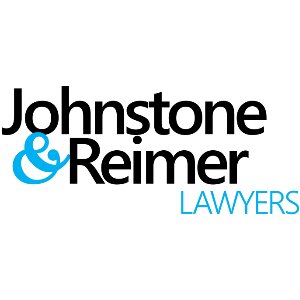Best Defamation Lawyers in Australia
Share your needs with us, get contacted by law firms.
Free. Takes 2 min.
Or refine your search by selecting a city:
List of the best lawyers in Australia
About Defamation Law in Australia
Defamation in Australia is primarily governed by the Defamation Act 2005, which is largely uniform across all states and territories. Defamation occurs when a false statement is made about an individual that damages their reputation. This can occur through various forms of communication, including written articles, spoken words, or even online posts. The law aims to balance the protection of individuals' reputations with the freedom of expression and the public interest in the availability of information.
Why You May Need a Lawyer
There are several situations where you may need legal help regarding defamation in Australia:
- False Statements: You may feel that statements made about you are false and damaging.
- Publications: You are a journalist or publisher worried about potential defamation suits against your work.
- Online Defamation: Negative remarks have been posted about you or your business online.
- Business Reputation: Your business reputation has been harmed by defamatory statements.
- Defending a Claim: You have been accused of defamation and need to defend yourself.
Local Laws Overview
Some key aspects of Australian defamation law include:
- Uniform Legislation: In 2005, uniform defamation laws were enacted in all Australian states and territories.
- Elements of Defamation: The plaintiff must prove that the statement was defamatory, referred to them, and was published to a third party.
- Defences: Common defences include truth (justification), absolute privilege, qualified privilege, honest opinion, and triviality.
- Cap on Damages: There is a statutory cap on non-economic damages in defamation cases.
- Serious Harm Requirement: The plaintiff must demonstrate that the publication caused, or is likely to cause, serious harm to their reputation.
Frequently Asked Questions
What constitutes defamation in Australia?
Defamation involves the publication of a statement that injures a person’s reputation. The statement must be false, and it must be communicated to someone other than the person defamed.
Can you defame someone on social media?
Yes, defamatory statements made on social media platforms can lead to legal action. The same laws apply online as they do in traditional media.
Is truth a defense to defamation in Australia?
Yes, truth is a complete defense in defamation proceedings, meaning that if the statement can be proven true, the defendant may not be considered liable.
What should I do if I am accused of defamation?
If accused, seek legal advice immediately to understand your rights and possible defenses. It’s also generally advisable not to respond or comment further publicly until given legal advice.
How long do I have to file a defamation claim?
The limitation period for defamation cases in Australia is generally one year from the date of publication of the defamatory material, although extensions may be granted in some circumstances.
What is the role of the court in defamation cases?
The court's role is to determine whether the published material was defamatory, if the defenses apply, and if liable, to assess and award damages.
Can organizations sue for defamation in Australia?
Yes, but generally, only certain non-profit and small businesses with fewer than 10 employees can sue for defamation in Australia.
What is the serious harm threshold?
The plaintiff must show that the defamatory statement has caused or is likely to cause 'serious harm' to their reputation.
Are written communications necessary to prove defamation?
No, defamation can occur through any means of communication, including spoken words, images, gestures, and broadcasts, not just written words.
What can I claim in a defamation lawsuit?
You can claim damages for harm suffered, which may include economic loss and for the distress caused by the defamation. There may also be a claim for an apology, retraction, or correction.
Additional Resources
If you need further guidance, you may consider the following resources:
- The Australian Law Reform Commission (ALRC)
- State and Territory Law Societies for referrals and resources
- Publications by law firms specializing in media and defamation law
- Find Legal Answers - A service providing free information about the law for people in New South Wales
Next Steps
If you believe you have a defamation case or if you need defense against an accusation, consider the following steps:
- Consult a Lawyer: Contact a legal professional specializing in defamation to understand your specific situation.
- Document Everything: Keep records of the defamatory content, any communications related to it, and any consequences you have faced.
- Avoid Public Commentary: Until advised by a lawyer, limit public comments about the case to avoid complicating legal proceedings.
- Consider Alternative Dispute Resolutions: In some cases, mediation or retraction may resolve the matter without going to court.
Careful consideration and professional advice are crucial in handling defamation issues, given the complexities involved in the law and the potential impacts on reputations and livelihoods.
Lawzana helps you find the best lawyers and law firms in Australia through a curated and pre-screened list of qualified legal professionals. Our platform offers rankings and detailed profiles of attorneys and law firms, allowing you to compare based on practice areas, including Defamation, experience, and client feedback.
Each profile includes a description of the firm's areas of practice, client reviews, team members and partners, year of establishment, spoken languages, office locations, contact information, social media presence, and any published articles or resources. Most firms on our platform speak English and are experienced in both local and international legal matters.
Get a quote from top-rated law firms in Australia — quickly, securely, and without unnecessary hassle.
Disclaimer:
The information provided on this page is for general informational purposes only and does not constitute legal advice. While we strive to ensure the accuracy and relevance of the content, legal information may change over time, and interpretations of the law can vary. You should always consult with a qualified legal professional for advice specific to your situation.
We disclaim all liability for actions taken or not taken based on the content of this page. If you believe any information is incorrect or outdated, please contact us, and we will review and update it where appropriate.
Browse defamation law firms by city in Australia
Refine your search by selecting a city.
















